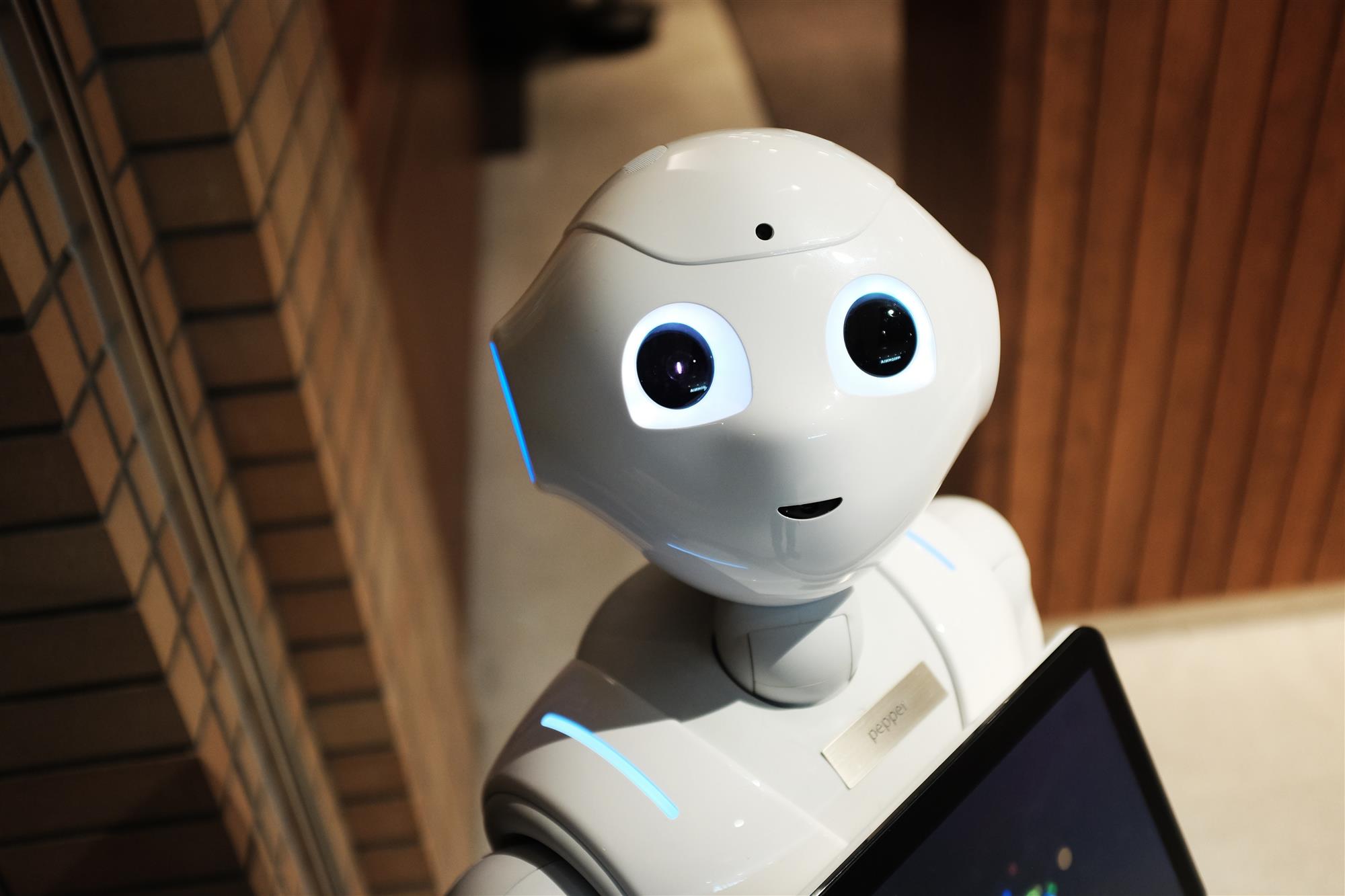 Smart technology (tech) in hotels is not a new concept globally. Hotel brands like Marriott, Hilton, Accor, CitizenM, and a few others have been testing their own mobile apps, smart room features, and other technological innovations such as chatbots, voice assistance, automation, and even robots at their properties in the last few years. Meanwhile, YOTEL Hotels (across properties), Henn Ha Hotel Tokyo, Aloft Cupertino, and M Social Singapore have gone a step further to provide guests with a truly futuristic experience by using robots as porters and butlers for room service.
Smart technology (tech) in hotels is not a new concept globally. Hotel brands like Marriott, Hilton, Accor, CitizenM, and a few others have been testing their own mobile apps, smart room features, and other technological innovations such as chatbots, voice assistance, automation, and even robots at their properties in the last few years. Meanwhile, YOTEL Hotels (across properties), Henn Ha Hotel Tokyo, Aloft Cupertino, and M Social Singapore have gone a step further to provide guests with a truly futuristic experience by using robots as porters and butlers for room service. The Indian hotel sector has been slow to jump on the bandwagon, putting cutting-edge technological advancements on the backburner for years due to the costs involved. Before the ongoing pandemic, a few hotel properties in India had introduced smart tech features in rooms, but the examples were few and far between. Most hotel rooms still followed the standard practices using age-old tech in rooms and only a few had started applying advanced room features like motion sensors, primarily to reduce costs and increase their sustainability quotient. However, things have changed drastically in the last year. Hoteliers were forced to adopt technological innovations to survive during the pandemic and some of them have realized that tech-driven changes are here to stay.
The rise of smart tech will bring fundamental changes in hotel design in India going forward.
Indian hoteliers have been revamping their existing hotel infrastructure to facilitate COVID-related social distancing and hygiene requirements to ensure the safety of their guests and employees. Tech features, such as mobile/keyless check-in and check-out, digital menus, and contactless payments, that were once considered novelties, have become standard features today. But this is just the beginning!

In today’s ‘touchless’ but ‘connected’ world, hotel companies are implementing various contactless technologies such as mobile apps, digital keys, and even automated self-check-in kiosks at their properties, which will soon make reception counters – the first point of contact for a guest – redundant. Similarly, the bell desk and concierge will soon be replaced by virtual helpdesks or chatbots given that most hotel guests are now comfortable seeking information on their hand-held devices.
Most guests today use smart home tech devices and expect similar facilities while traveling as well. Going forward, hotels will be developed with smart IoT-enabled guest rooms to enhance guests' comfort and experience. All guest in-room functions and service requirements, from operating the lights, curtains, air conditioning, TV, switching TV channels to even using casting & streaming services and ordering room service, will be done through a virtual assistant the likes of Alexa, Siri, or Google Assistant, specially developed for the hospitality sector. These voice-controlled features will soon become a standard in hotels, assisting guests with not only information about the city, tourist spots, restaurants, etc., but also booking tables at restaurants from the comfort of their hotel rooms.
In the longer run, facial recognition and biometrics will be used extensively for authentication purposes. Imagine checking in or opening your hotel room with your fingerprints or facial recognition features! Robots in hotels will no longer be an imaginary future trend and will be used as concierges, for room delivery services, and even for cleaning and sanitization purposes.

Smart tech – Smart benefits for hoteliers and guests
Implementing technological innovations will help hoteliers to take personalization to the next level and enhance customer experience, thus, strengthening their competitive advantage. Besides this, one of the biggest advantages of implementing smart tech is a reduction in costs, especially utility and energy costs. Smart energy and lighting systems can cut energy, heating, and air conditioning waste in rooms by adapting to real-time changes in room occupancy and enabling predictive maintenance. Previous research by global experts indicates that smart energy management systems alone can reduce hotel energy costs by up to 35-45% while making hotels more environmentally friendly.
Additionally, it will also help with streamlining processes, optimizing operational efficiency, and enhancing staff productivity, all of which will help in improving the sector's profitability. Increasing automation & usage of technology does not mean a reduction in hospitality jobs. While the staff to room ratios are likely to decline to a more efficient number, it will also open new avenues for hospitality professionals as hotel management teams strive to strike the right balance between technology and the human touch. For instance, with the likely demise of the front desk and concierge, customer care call centers will be set up for a cluster of hotels that will respond to any queries or needs of guests staying in the hotel.
The way forward
There is no doubt that smart hotel systems are poised to play a greater role in future hotels, as it provides hoteliers endless possibilities to differentiate themselves from the competition and exceed guest expectations. However, it will bring with it a new set of challenges as hotels handle and store large amounts of customer data. While some of this data can help hotel management teams to customize and personalize their service offerings, they will also need to implement systems to handle data protection, ensure customer privacy, and cybersecurity, which will become crucial aspects as the sector becomes increasingly data-driven going forward.
About Mandeep S Lamba
Mandeep S. Lamba, President – South Asia, oversees the HVS global hospitality practice for South Asia. He has spent over 30 years in the hospitality industry of which the last 19 have been in CEO positions. Having worked with leading International and domestic Hotel Companies such as IHG, Radisson & ITC Hotels, he also set up joint venture companies with Dawnay Day Group UK and Onyx Hospitality, Thailand to own and operate hotels in India giving him a broader exposure to the hospitality business.
An established industry leader, Mandeep has won several awards and recognitions in India and abroad for his accomplishments and contribution to the hospitality industry. He is a Certified Hospitality Administrator from the American Hotels Association (CHA), a member of the Royal Institute of Chartered Surveyors, UK (MRICS) and a member of the Tourism Council of CII (Northern India). His views are often solicited for television and print media as a spokesperson for the hospitality & tourism sector.
Prior to joining HVS in 2018, Mandeep was the Managing Director, Hotels & Hospitality Group for JLL.
Contact Mandeep at +91 981 1306 161 or [email protected]
An established industry leader, Mandeep has won several awards and recognitions in India and abroad for his accomplishments and contribution to the hospitality industry. He is a Certified Hospitality Administrator from the American Hotels Association (CHA), a member of the Royal Institute of Chartered Surveyors, UK (MRICS) and a member of the Tourism Council of CII (Northern India). His views are often solicited for television and print media as a spokesperson for the hospitality & tourism sector.
Prior to joining HVS in 2018, Mandeep was the Managing Director, Hotels & Hospitality Group for JLL.
Contact Mandeep at +91 981 1306 161 or [email protected]
About Dipti Mohan
Dipti Mohan, Associate Vice President - Research with HVS South Asia, is a seasoned knowledge professional with extensive experience in research-based content creation. She has authored several ‘point of view’ documents such as thought leadership reports, expert opinion articles, white papers, and research reports across industries including hospitality, real estate, infrastructure, cement, and construction. Contact Dipti at [email protected]


0 Comments
Success
It will be displayed once approved by an administrator.
Thank you.
Error